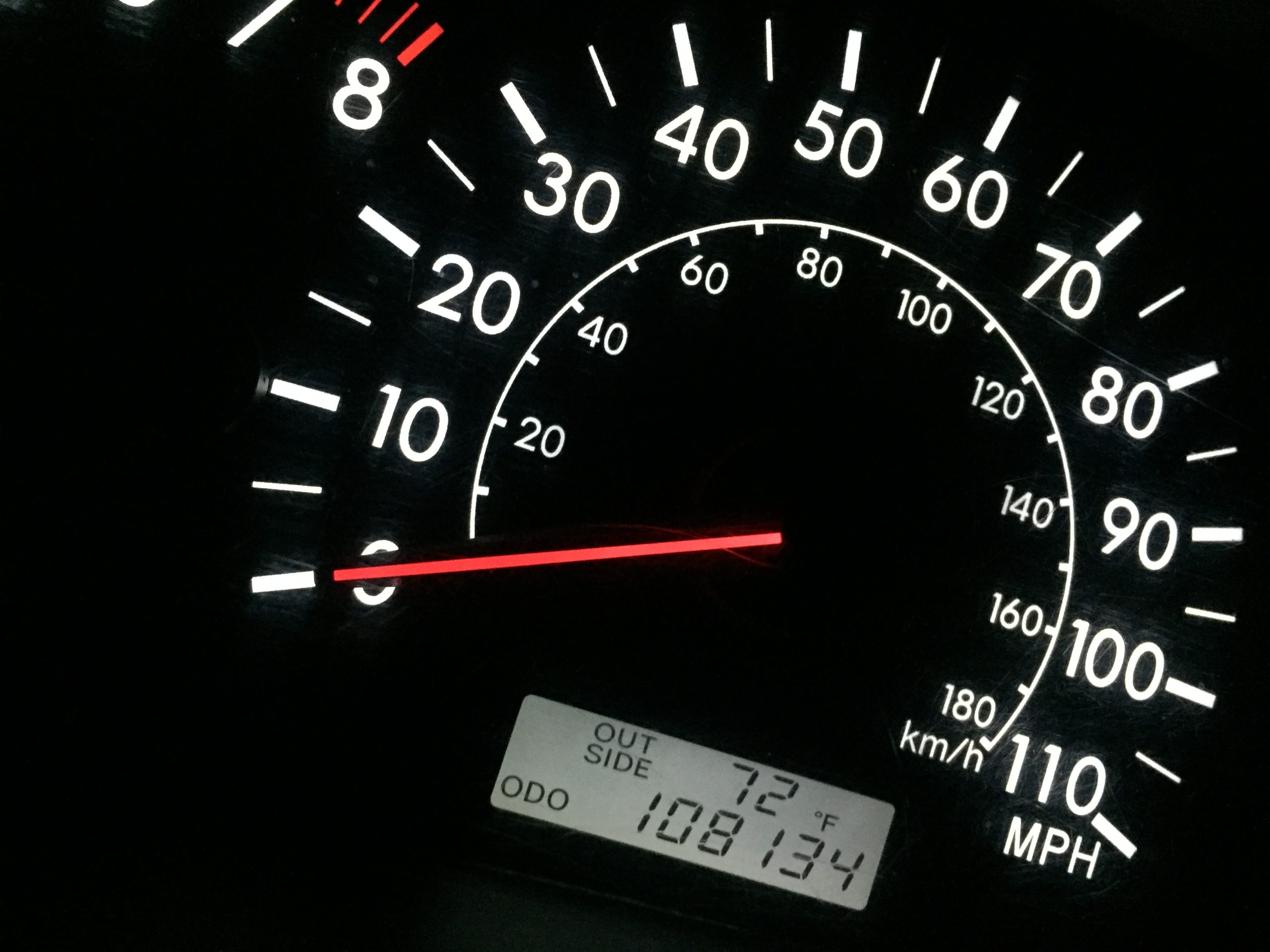Imported American Cars in Kuwait: The Mileage Risk Most Buyers Miss

American cars have always been a favorite in Kuwait’s car market, for so many reasons, topped with their reputation for power, durability, advanced technology, and, not to mention the lower prices compared to local dealership rates.
It’s no surprise that an estimated 60% of cars sold in Kuwait today come from the United States. But behind this popularity lies a reality many consumers don’t anticipate: odometer fraud.
Once a vehicle leaves the United States and enters a new market, the chain of verification breaks — creating an opportunity for mileage to be altered before the car reaches its final buyer.
This silent issue has cost many buyers thousands of dinars, weakened trust in imported cars, and made the process of buying an American vehicle riskier than it appears. A car that shows “60,000 miles” could have actually driven 180,000 — and without proper checks, the buyer may never know.
In this article, we break down why mileage fraud happens in U.S.-imported cars, the red flags every buyer should watch for, and the exact steps to verify a car’s real history.
The Hidden Risk: Odometer Tampering in Imported U.S. Cars
Despite the benefits, one major issue continues to affect the market: tampering with mileage before a car is sold in Kuwait.
Because U.S.-imported vehicles pass through several hands, countries, and processes, their history is not always transferred with full transparency. When the vehicle’s paperwork isn’t consistently tracked or verified at every stage, it creates opportunities for the displayed mileage to be altered without the buyer noticing.
This is why some cars arrive looking clean and well-maintained, but with mileage readings that don’t match their true usage.
Why mileage fraud matters
Mileage isn’t just a number. It affects:
- Resale value.
- Engine and transmission health.
- Maintenance needs.
- Insurance and financing decisions.
- Long-term reliability.
A car with 180,000 miles is not the same as a car with 60,000 miles — yet on the surface, they can look identical.
How Car Dealerships Protect You During the Buying Process
Professional car offices rely on clear and trusted documentation to verify the condition of the U.S.-imported vehicles. Two tools are considered the industry standard:
- Carfax
- AutoCheck
Both platforms use the car’s VIN to reveal critical information such as:
- Recorded mileage readings.
- Accident and damage history.
- Service and maintenance logs.
- Auction and inspection details.
- Title information.
- Total loss or salvage history.
When used properly, these platforms immediately expose any inconsistencies in mileage.

Carfax vs. AutoCheck: What’s the Difference?
1. Carfax: Strongest for service & maintenance
Carfax is known for having richer data on service history, maintenance records, dealership visits, and reported repairs.
It often includes:
- Oil changes.
- Brake replacements.
- Dealership servicing.
- Warranty work.
- More frequent mileage updates.
Carfax pulls from thousands of service centers across the U.S., which makes its records very detailed.
Best for: Buyers who want a very detailed maintenance and service history.
2. AutoCheck: Better auction & mileage verification
AutoCheck stands out in one area: auction data.
Because it is partnered with major U.S. auction companies (like Manheim), AutoCheck is better at:
- Tracking auction events.
- Flagging mileage inconsistencies.
- Showing auction grades or conditions.
- Listing the number of times the car passed through auctions.
This makes AutoCheck particularly useful for detecting odometer issues, “flip” cars, or vehicles that move through multiple auctions quickly.
Best for: Identifying mileage fraud, auction history, and vehicle turnover.
Even though these reports reveal the truth, not all sellers provide them — and not all buyers ask for them.
This is where most mileage issues remain hidden, and where informed buyers can make the biggest difference.
How to Avoid Mileage Fraud: A Buyer’s Guide
To help you navigate the market safely, here are the three essential protections every buyer must follow before purchasing an American-imported car.
1. Demand a verified Carfax or AutoCheck report
To keep your money safe, never buy a U.S.-imported car without one of these reports. A proper history report will reveal:
If the mileage increased normally or suddenly dropped.
- If the car was ever declared salvage.
- How many times it has passed through auctions.
- Whether the odometer was replaced or altered.
- Accident records and repairs.
If a seller refuses to provide the report, or gives excuses like “the car is clean don’t worry,” consider that a red flag.
2. Get an independent mechanical inspection
Even if the history report appears satisfactory, a professional inspection is still essential.
Certified mechanics can detect clues such as:
- Unusual wear on pedals or seats.
- Inconsistencies in engine condition versus displayed mileage.
- Signs of dashboard removal or tampering.
- Diagnostic scanner reading mismatches.
In Kuwait, many trusted workshops specialize in checking American imports, and the small inspection fee is worth thousands in potential savings.
3. Document everything in the sales contract
Before finalizing the purchase, ensure the contract includes:
- The exact odometer reading.
- The condition of major components (engine, transmission, suspension, axle).
- Whether the vehicle has had previous accidents.
- Confirmation that the mileage is correct based on the provided report.
If anything turns out to be false later, this contract protects your rights.

Extra Tips to Validate The Car Condition
Compare mileage with U.S. auction records
Platforms like Copart and IAAI often show the car’s last recorded mileage.
Be cautious of “too good to be true” prices
A 50,000-mile car priced like a 150,000-mile one? Something may not add up.
Ask for original auction photos
They often include dashboard images showing the true mileage.
Check the car’s age vs. mileage
A 2018 car showing only 25,000 miles might be real — but always verify through reports and inspections.
A Long-Term Solution for the Market
Industry experts agree on the ultimate solution:
- Requiring importers to submit an official Carfax or AutoCheck report during vehicle registration.
- Ensuring smoother data flow between import channels and registration authorities.
- Strengthening documentation from the start of the process would significantly reduce the chances of incorrect mileage reaching buyers.
Such measures support both consumers and reputable dealerships, building greater trust across the market.
Transparency in Car Buying: How 4Sale Helps?
One of the most effective ways for buyers to avoid mileage fraud is to purchase through trusted car offices on 4Sale that openly share:
- Verified Carfax and AutoCheck reports.
- Clear disclosure of any mileage adjustments.
- Honest explanations of past accidents or repairs.
- Professional inspection results and documentation.
This level of openness helps buyers make informed decisions and reduces the risk of hidden issues. On 4Sale, transparency is supported by the fact that we work closely with some of the biggest and most trusted verified car offices in Kuwait — many of whom provide full history reports, inspection details, and clear mileage disclosures that build real confidence for buyers.
With that in mind, before buying your next American-imported car, take a moment to review listings carefully, compare available reports, and connect with sellers who prioritize clarity and customer safety.
If you’re looking for transparent, trustworthy options, explore verified car offices on 4Sale and choose your next car with confidence.



